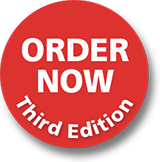Chapter 3 – Accessing funds of knowledge
Chapter Summary
The challenge for early childhood educators is ‘to see the task of making connections not as one of getting rid of the diversity that they encounter in the make-up of their populations, nor of dealing with diversity as some- thing that has to be coped with, but rather as one of incorporating diversity to the advantage of effective pedagogy’ (McNaughton 2002, p. 31).
Building quality connections between home and school requires educators to explore the worlds of children, their activities, practices and funds of knowledge. Literacy is not just print or language; it also includes the ways in which meaning is represented in signs, logos, music, animation and forms of multimedia. The notion that the rules for producing different kinds of texts—whether spoken, written or visual—are somehow natural, universal and accessible to all is not substantiated by the research into home and school communities. Rather, the arbitrary rules for reading and producing different genres are community-specific and situation- specific. Once teachers take on board the idea that language and reading are community-specific and situation-specific, then all kinds of language can be analysed and explored. The development of this awareness that language is an ‘object of contemplation’ enables teachers and children to develop ways of working with literacy with greater power to reflect on how language can be used in a range of different situations.
Parents and caregivers can support language and literacy at home and in the community by using community funds of knowledge and linking this to school literacy. Reading and talking about books together enhances interactions with the child, and builds vocabulary and comprehension skills. There is no better activity to build literacy than reading aloud to young children.
Study Questions
Main ideas
What is a strength-based approach to working with families in early literacy development?
What factors do you need to consider in indigenous literacy development?
How could you as a teacher make use of children’s funds of knowledge and learning from family members? (For example, hearing about a brother who works in a restaurant, a grandmother who paints tiles to sell, or a father who is a singer in a band.)
Application to a developmental stage
Think about ways in which activities based on funds of knowledge can be linked with the curriculum
Diverse learners
Read the case studies about Pete, Erin and Christianne. What important pieces of information did you learn that could assist each child in their literacy development?
Assessment
How could you find out about the different forms of literacy used by families? Are the literacy practices in each family linked to cultural and religious practices?
Teaching plans
Plan a leaflet to share with families that has tips to encourage family members to read aloud picture books at home.

